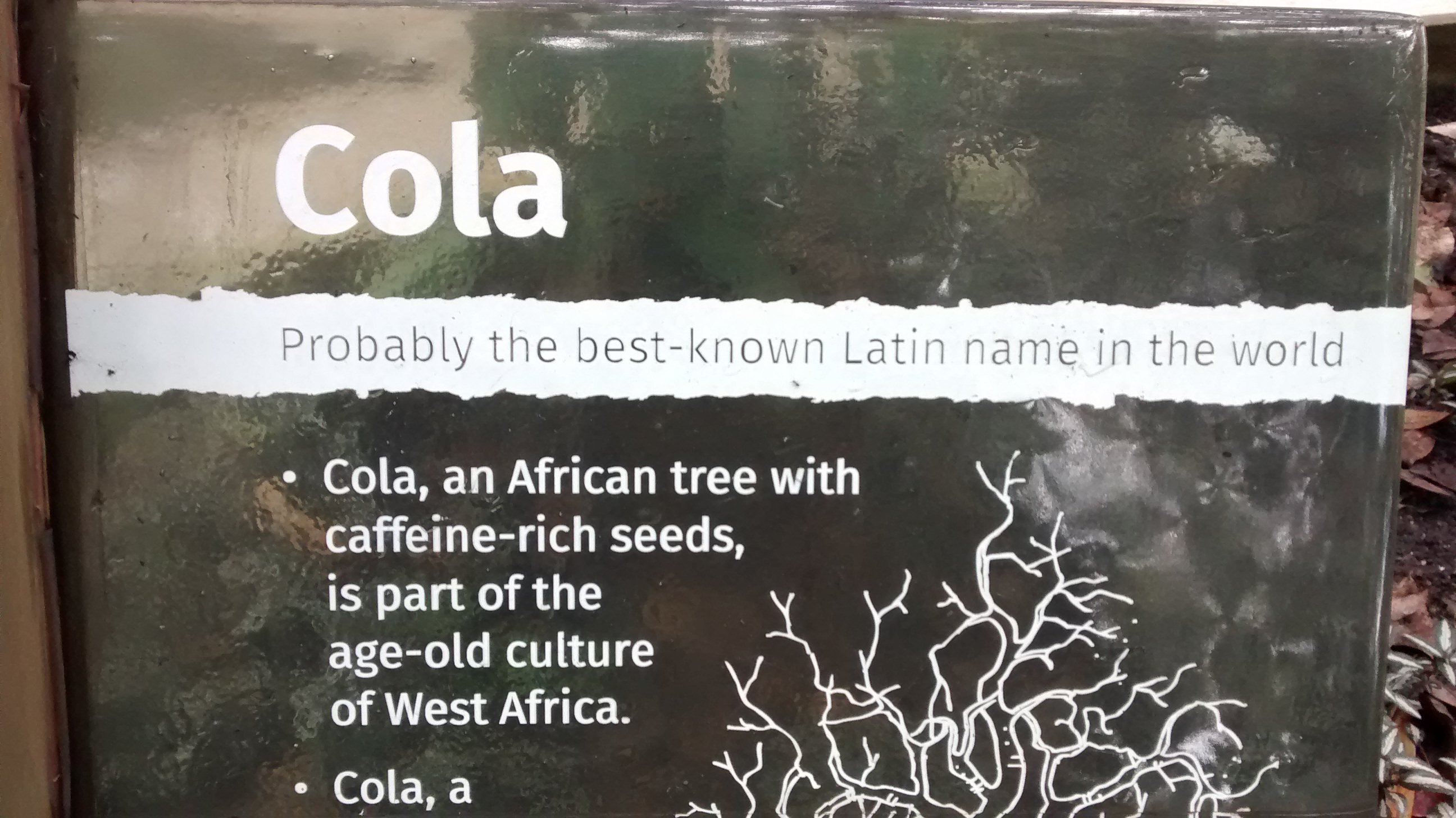I found this in an ecological park:
Cola is actually a Latin word (a scientific one, referring to the plant), albeit its etymology is African.
I am curious about whether it is "probably" the best-known Latin word in the world. If not, which one might it be?
I think we could agree that Cola it is likely to be indeed very well known. We could also agree that it might be impossible to satisfactorily settle the issue of the "best-known" Latin word. Yet, hopefully, by comparing with other well-known words, we could gauge the extent to which that claim is likely to be true or not.
